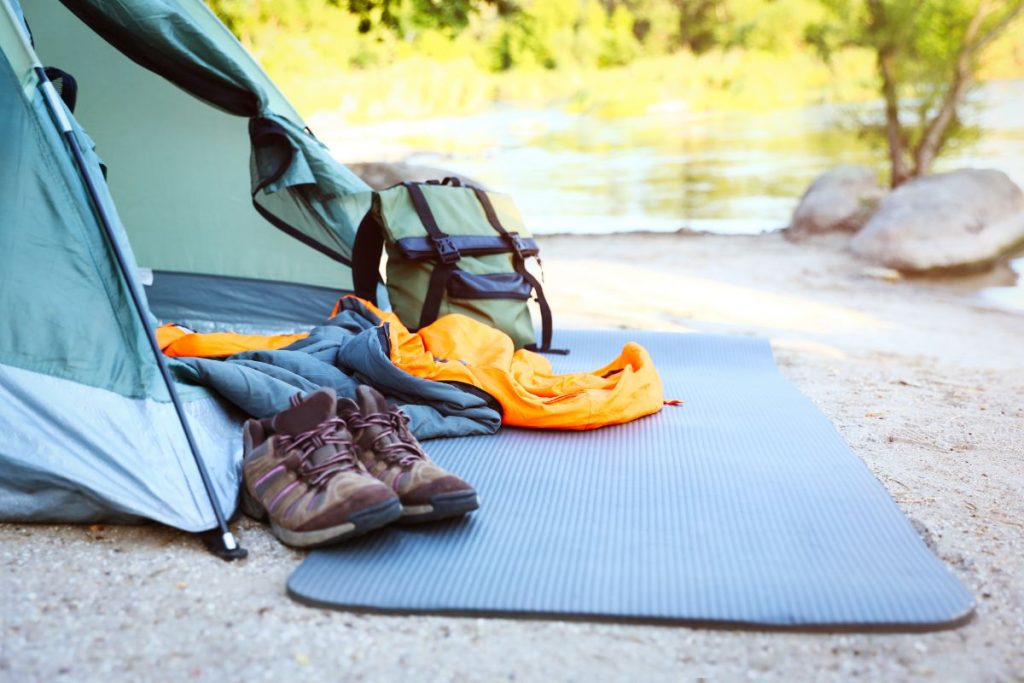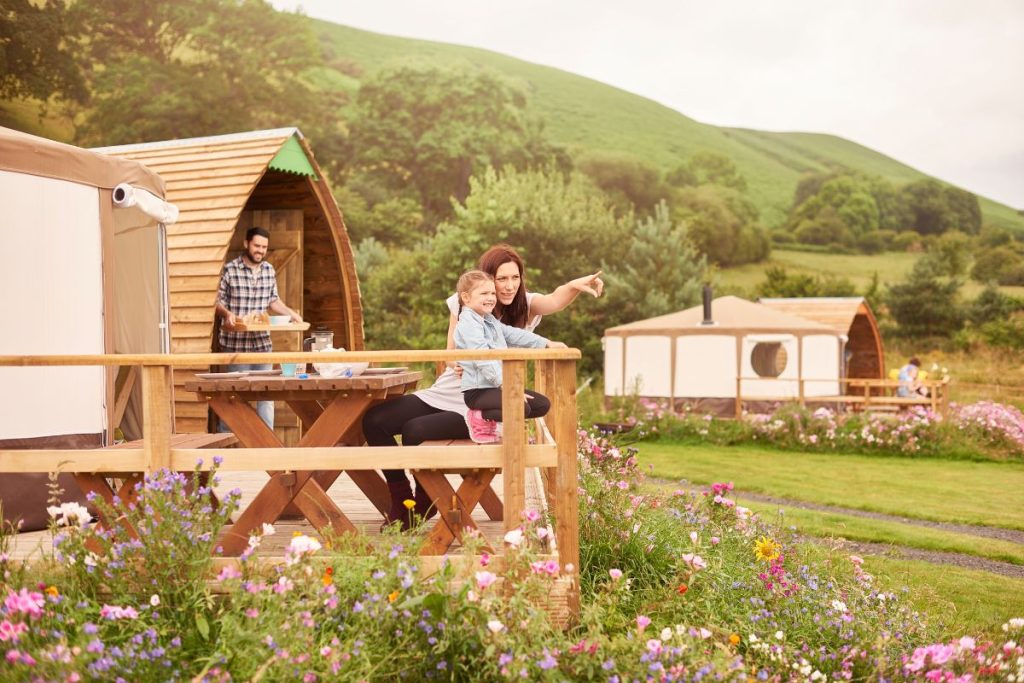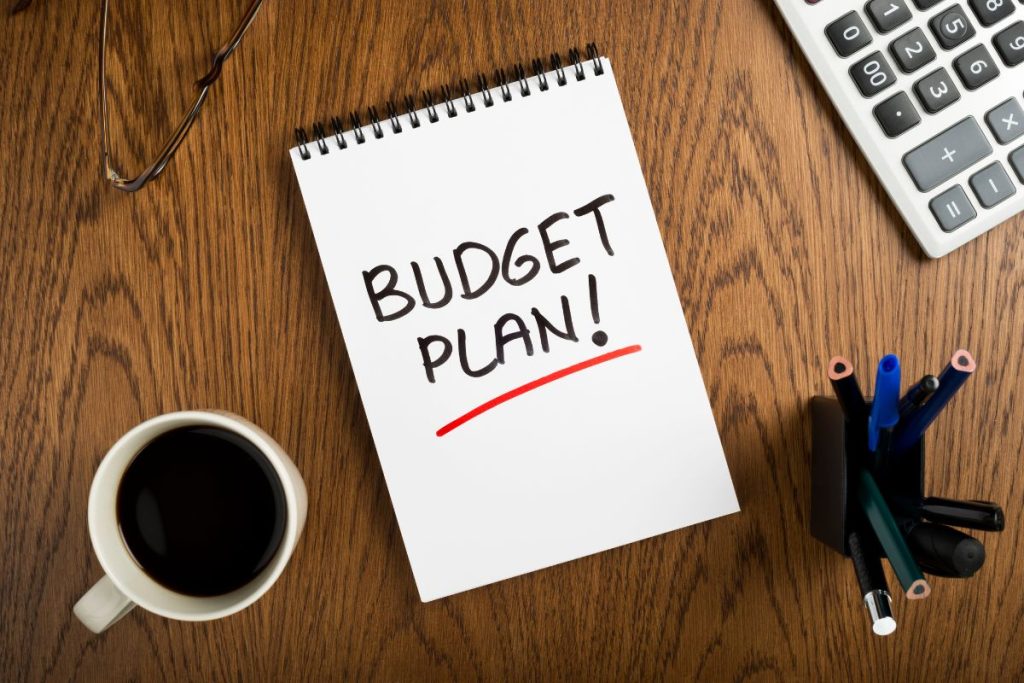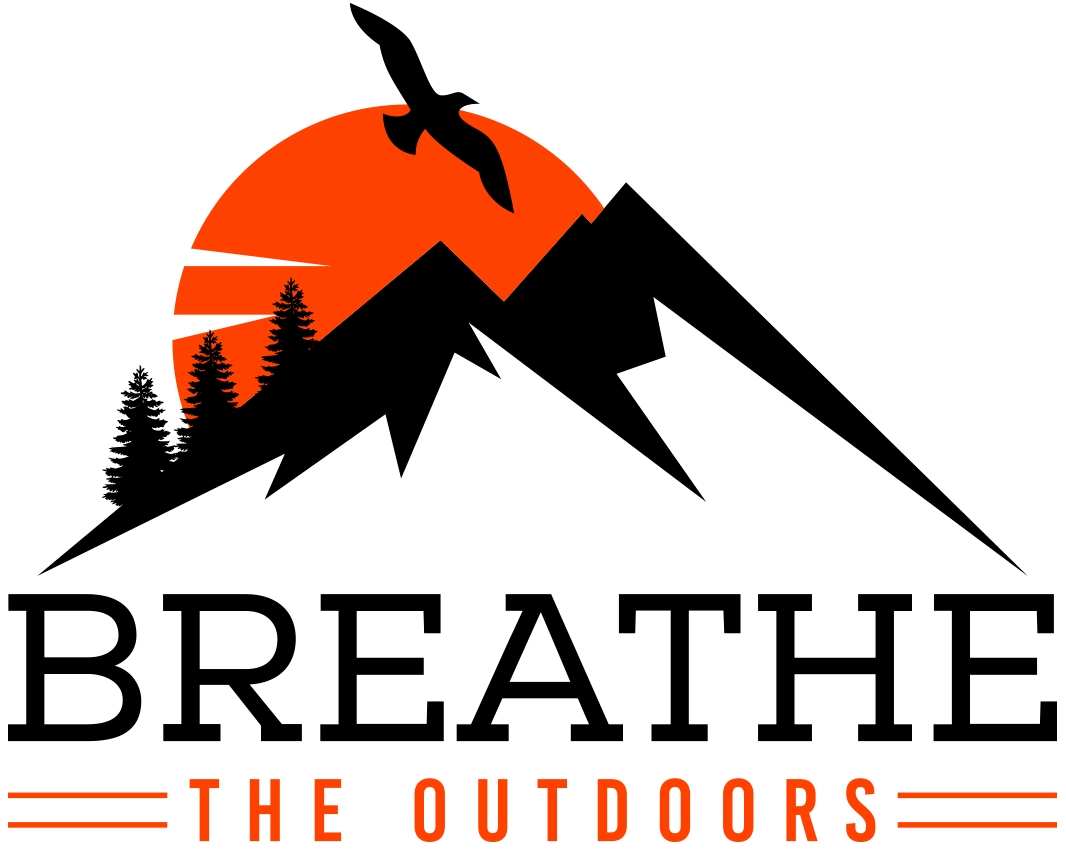Is camping expensive? It’s a question as common as roasting marshmallows by the fire. Part myth, part misunderstanding, and part curiosity – because yes, camping can cost money. But it doesn’t have to break the bank. In this detailed guide, we explore where you can save, where it’s worth splurging, and how camping stacks up against hotels, day trips, and other travel experiences.
You’ll get real-world breakdowns from places like the UK, US, Canada, Australia, and Europe – plus gear strategies, budgeting shortcuts, and sample cost templates. Whether you’re an opulent RV camper or a minimalist backpacker, this guide helps you build a trip that fits your wallet and your wanderlust.
Camping doesn’t have to be expensive – many places offer pitches for $10 – $30/night. The major costs (gear, transit, food) can often be managed creatively. With the right planning and choices, camping becomes one of the most affordable ways to explore nature – especially when compared to hotel stays or long-distance travel.
Read on to discover exactly where the costs lie, how to cut them without cutting comfort, and why camping might just be the best-value break you’ll ever take. We’ll break down gear choices, campsite types, clever cost-saving strategies, and compare camping to other forms of travel – so you’ll know exactly what to expect, and how to make it work for your budget.
Contents
- Camping Costs Explained: From Budget to Glamping
- What Makes Up the Cost of Camping?
- Is Camping Cheaper Than Other Holidays?
- Real Trip Cost Examples for Reference
- Guide to Saving on Camping Trips
- FAQs
- Final Thoughts
Camping Costs Explained: From Budget to Glamping
So, how much does camping really cost? The truth is there’s no single price tag – it’s a sliding scale that depends on where you camp, how you camp, and what kind of experience you want. The good news is that camping is one of the most flexible types of travel. It can be nearly free if you’re happy with the basics, or it can creep into boutique-holiday territory if you lean into glamping comforts.

Let’s look at the main types of camping and what they actually cost in practice.
1. Budget Camping (The Classic Tent Pitch)
This is the camping most of us think of: a tent, a sleeping bag, and a patch of ground at a modest site.
- Average price range: $10–$30 per night (UK: £10–£25 / Europe: €10–€30).
- Facilities included: Usually toilets, running water, and sometimes basic showers.
- Who it’s for: Families, backpackers, budget travellers, and anyone who wants a no-frills nature escape.
This is by far the cheapest way to camp legally, and once you’ve got your core gear, costs stay very low. In fact, this style of camping is one of the most cost-effective holidays you can take anywhere in the world.
2. Mid-Range Camping (Private & Serviced Sites)
Private campsites and serviced campgrounds offer more comfort – and the prices reflect it.
- Average price range: $40–$80 per night (£30–£60 / €35–€70).
- Facilities included: Hot showers, electric hookups, laundry, cafés, and sometimes Wi-Fi.
- Who it’s for: Campers who don’t want to ‘rough it’ but still want a nature-based experience.
These sites are popular with families, new campers, and anyone who enjoys a balance of comfort and affordability. They’re also more likely to offer pre-booking and seasonal deals, making them predictable cost-wise.
3. High-End Camping (Glamping, Cabins & Luxury Tents)
Glamping blurs the line between camping and hotels – and the costs can rival the latter.
- Average price range: $100–$200+ per night (£80–£150+ / €100–€180+).
- Facilities included: Real beds, heating, electricity, proper bathrooms, and often extras like hot tubs or fire pits.
- Who it’s for: Travellers who want the outdoor setting but not the setup hassle – or who like a little luxury with their wilderness.
While glamping isn’t cheap, it’s still often cheaper than an equivalent boutique hotel, especially when meals and activities are included.
4. Wild Camping (Free or Almost Free)
At the other end of the spectrum is wild camping – the cheapest option if you’re able to do it legally.
- Average price range: Free (legal in Scotland, Scandinavia, parts of New Zealand, Canada, and the US).
- Facilities included: None – you’ll need to carry everything.
- Who it’s for: Experienced campers who value solitude, simplicity, and independence.
Note: Wild camping isn’t legal everywhere. In England, most of Europe, and much of North America, you need landowner permission or must stick to designated dispersed camping zones. Always check local laws before heading out. For those based in the UK, check our Can You Camp Anywhere in the UK post.
5. RVs, Campervans & Caravans (The Hidden Costs)
Worth mentioning separately: motorised camping. It feels cheaper than hotels, but costs add up quickly.
- Average price range: $30–$70 per night for a serviced pitch, plus fuel, insurance, and maintenance.
- Extras: Hookup fees, dump-station charges, ferry tickets (often higher for vehicles) and higher fuel use.
- Who it’s for: Long-term travellers, families, or those who prefer a ‘home on wheels’.
For short breaks, RVs and campervans can actually be more expensive than tent camping, especially if you’re renting. But for long road trips, they can save on accommodation while offering flexibility.
The Bottom Line
Camping can cost anywhere between nothing at all and several hundred dollars per night. But unlike hotels, you have full control over where your money goes. Whether you’re pitching a $20 tent in the Highlands or booking a glamping pod in California wine country, camping is one of the few types of travel that adapts perfectly to your budget.
What Makes Up the Cost of Camping?
Once you’ve chosen your style of camping (budget tent, serviced site, glamping pod, or wild) the actual costs fall into four main categories: gear, transport, food, and extras.

How much you spend in each depends on your choices, but knowing the breakdown helps you control the budget without cutting comfort.
1. Gear (Your Biggest Upfront Cost)
Gear is where most first-time campers either overspend (buying every gadget under the sun) or underspend (going too cheap and regretting it when the tent leaks).
- Essentials: A decent tent, sleeping bags, mats, and a stove.
- Price ranges:
- Budget: $150–$250 (£120–£200) can get you a starter set that’ll last a few trips.
- Mid-range: $400–$800 (£350–£700) buys solid kit that can last 5–10 years.
- High-end: $1,000+ (£900+) if you go for ultralight or premium gear.
- Money-saving tips:
- Borrow or rent if you’re new.
- Buy second-hand (Facebook Marketplace, REI Garage Sale or Decathlon clearance).
- Invest in core items (tent, mat, sleeping bag) – you can always upgrade the luxuries later.
The good news: once you’ve got the basics, camping becomes incredibly cheap. Gear is a one-time (or rare) expense that pays off over years.
And if you’re wondering which gear is really worth investing in, the mattress should be near the top of your list. A good night’s sleep makes or breaks a trip, especially if you’ve got a sensitive back – we’ve put together a full guide to the best camping mattresses for a bad back to help you choose.
2. Transport (Often the Hidden Cost)
How you get to camp can also make or break your budget.
- Car camping: Fuel + parking can add up, especially if you drive long distances. Some campsites also charge a per-vehicle fee.
- Car-free camping: Public transport is often cheaper – trains, buses, and ferries can all get you close to the action. In Europe and Japan, car-free is often the easiest (and cheapest) option.
- Flights: If you’re flying to camp (say, Iceland or Canada), add baggage fees and transfers. The lighter your kit, the cheaper your transit.
- Costs at a glance:
- Local trips: $20–$50 (£15–£40) in fuel or train tickets.
- Longer road trips: $100–$300 (£80–£250) depending on distance.
- Flights: $200+ plus baggage fees.
If you’re serious about budget camping, stay local. A weekend in a nearby national park can feel just as adventurous as a cross-country trip, without the travel bill. Local camping also lends itself perfectly to camping without a car, potentially saving you a fair chunk on fuel costs and per-vehicle campsite fees.
3. Food (Cheaper Than Eating Out)
Food is the category where you have the most control.
- DIY meals: Groceries and simple camp cooking are cheap. Think oats, pasta, couscous, beans, tuna sachets, trail mix.
- Cost: $5–$10 (£4–£8) per person, per day.
- Mixed approach: DIY most meals, splurge on one café/pub meal.
- Cost: $10–$25 (£8–£20) per day.
- Eating out: If you treat camping like a holiday and eat out daily, costs climb fast.
- Cost: $30+ (£25+) per day.
Pro tip: skip overpriced freeze-dried meals unless you’re backpacking. For car or train camping, normal supermarket groceries go further and taste better.
4. Extras (The Sneaky Add-Ons)
This is where costs creep in if you don’t plan for them.
- Permits & passes:
- US: National Park entry ~$35 per vehicle (America the Beautiful annual pass is $80).
- UK/Europe: Some parks charge small fees (£5–£10).
- Rentals: Kayaks, SUP boards, bikes – $20–$50 per day.
- Showers: Some campsites still run on coins (~£1–£2 or $2–$3 for 5 minutes).
- Parking fees: If you’re not staying overnight but hiking/camping nearby.
- RV-specific: Hookups, dump stations, higher ferry fees.
None of these are deal-breakers, but they can quickly turn a $100 weekend into a $200 one. Always check campsite details and bring a little buffer cash.
The Bottom Line
Your camping trip budget will look very different depending on your style:
- Bare-bones tent camping: $20–$40 (£15–£30) per night, including food and pitch.
- Comfortable family camping: $60–$120 (£50–£90) per night.
- Glamping: $150+ (£120+) per night, all in.
The key is that you control the spend. Unlike hotels or package holidays, camping lets you strip costs back to the bare essentials – or build them up if you want extra comfort.
Is Camping Cheaper Than Other Holidays?
Once you’ve seen the numbers for gear, food, and extras, the next obvious question is: how does camping compare to other kinds of holidays?

The short answer: in almost every case, camping is the cheapest way to get away, especially once you’ve bought your core gear.
Camping vs. Hotels
Hotels are convenient, sure; you get fluffy towels and someone else makes the bed. But you’ll pay for it. A mid-range hotel in the US or UK often runs $120–$180 (£100–£150) per night for a double room. Add meals, parking, and city taxes, and a long weekend can set you back $600+ (£500+). Compare that to a $20-per-night (£15) tent pitch and some groceries: the saving is obvious.
Camping vs. Airbnb
Airbnb used to be the budget-friendly alternative to hotels. These days, service fees, cleaning charges, and peak-season markups mean it’s often just as expensive (if not more). A modest Airbnb can cost $90–$150 (£70–£120) per night. Again, that’s 3–6 times the cost of a decent campsite.
Camping vs. Hostels
Hostels can come close to camping on price; around $25–$50 (£20–£40) per person, per night. But you’ll usually be sharing a room with strangers, and food costs are on top. Camping offers the same price point (or lower) with the bonus of fresh air, privacy, and your own space.
Camping vs. Package Holidays
Even bargain package deals rarely dip under $300–$400 (£250–£300) per person for a week (flights + hotel). That might sound tempting until you add in transfers, food, and excursions. Camping, especially local camping, can give you multiple weekends away for less than the price of one package holiday.
The Verdict
Camping wins on cost almost every time. The only real exception is if you’re buying all-new, high-end gear just for one trip – in which case a hostel or budget Airbnb might work out cheaper. But if you see camping as a lifestyle rather than a one-off, the maths is clear: after your initial investment, the outdoors is the best value holiday you can take.
Real Trip Cost Examples for Reference (Gear Already Acquired)
It’s one thing to look at price ranges, but what does a real trip actually cost once you’ve already got your tent, bags, and stove? Here are a few sample budgets to give you a clearer picture.
1. Solo Weekend – Local Campsite (US/UK)
- Transport: Train ticket to nearby park $25 (£20) return
- Campsite fee: $40 (£32) for 2 nights
- Food: Groceries + snacks $20 (£16)
- Extras: A coffee + one pub meal $25 (£20)
Total: $110 (£88) for a 2-night solo break – less than one night in a budget hotel.
2. Couple’s Getaway – Car Camping (Mid-Range)
- Transport: Fuel + parking $60 (£50)
- Campsite fee: $100 (£80) for 2 nights on a serviced pitch
- Food: Groceries + one nice restaurant meal $70 (£55)
- Extras: Showers + wood for fire $20 (£16)
Total: $250 (£200) for a 2-night trip for two – about the same as one night in a mid-range hotel.
3. Family of Four – Long Weekend (Budget-Friendly)
- Transport: Fuel $100 (£80)
- Campsite fee: $150 (£120) for 3 nights
- Food: DIY meals + snacks $120 (£95)
- Extras: Ice creams, parking, and a small rental (kayak) $60 (£48)
Total: $430 (£343) for a 3-night family break – less than half the cost of a package holiday.
4. Fly-to Adventure – Iceland (Car-Free)
- Transport: Return flight $250 (£200) + shuttle bus to campsite $40 (£32)
- Campsite fee: $75 (£60) for 3 nights
- Food: Groceries + occasional café meal $90 (£70)
- Extras: Hot spring entry + showers $40 (£32)
Total: $495 (£392) for a 3-night international trip – still cheaper than most city breaks.
These are just examples, of course. Costs vary by country, season, and how frugal (or fancy) you like to camp. But they highlight the big picture: once you’ve got your gear, camping trips can cost as little as $50–$100 per person for a full weekend away.
Guide to Saving on Camping Trips (Without Feeling Like You’re Roughing It)
Camping might be one of the most affordable ways to travel, but it can still chew through your budget if you’re not careful – especially if you fall into the gear trap or get lured by shiny campsite extras. Luckily, there are plenty of ways to make camping even more cost-effective, without sacrificing comfort or adventure.

Here’s how to save money while still having a great time…
Stay Local (and Skip the Long Journey Costs)
You don’t need to head to the Highlands or the Rockies to feel the magic of the outdoors. Local nature spots – whether it’s a nearby national park, woodland reserve, or coastal path – can offer everything you need for a memorable escape. The benefit? You spend less on fuel, transit tickets, or tolls, and more time actually relaxing.
If you’re in the UK, for example, sites like Camping and Caravanning Club or Nearly Wild Camping offer directories with search filters for nearby options. In the US, platforms like Hipcamp and Recreation.gov allow you to zoom into your local region for hidden gems.
Bonus tip: Search for “wild camping near me” or “car-free campsites near [your town]” – even if wild camping isn’t legal, you may find eco-friendly or hike-in options that fly under the radar (legally).
Prep Meals Like It’s Your Own Tiny Kitchen
Campsite food doesn’t need to mean tins of beans and instant noodles (unless you love those – no judgment). Buying groceries in advance, pre-portioning dry mixes (like pancake batter or couscous blends), and bringing basics like oil, spices, and oats can help you build tasty meals with minimal gear.
Even better? If your route includes local shops, markets, or bakeries, you can top up without lugging everything from home. Pack a small cooler bag or insulated pouch for perishables. Think of it like “grocery shopping with a tent.”
Pro tip: Skip pricey freeze-dried meals unless you’re doing serious backpacking. A few tins of chili, a bag of rice, and some fresh fruit go a long way for half the cost.
Borrow, Share, or Rent Your Kit
If you’re new to camping – or only go once or twice a year – it might not make sense to spend hundreds on gear. Instead, ask around: friends, family, community groups, or even libraries in some cities loan camping equipment. Online communities like Facebook Marketplace, Freecycle, or local hiking forums often have great deals or temporary swaps.
You can also rent gear from outdoor shops or specialty sites. In the UK, Try Before You Buy schemes are growing; in the US, REI offers rentals in many locations.
Only invest in the essentials you’ll use again and again – like a good sleeping bag or a compact stove – and borrow the rest until you know your camping style.
Use Membership Discounts, Permits & Passes
Camping clubs, outdoor networks, and nature preservation groups often provide major savings – not just on campsite fees, but on gear, maps, transport, and more. Here are a few worth considering:
- In the UK: Camping & Caravanning Club, YHA, or National Trust memberships.
- In the US: America the Beautiful Annual Pass gives access to all National Parks and lands for one flat fee (~$80/year).
- In Australia: ParkStay and regional park passes often save money on long-term access.
- Across Europe: Many countries have domestic “camper cards” or backpacker networks offering discounts.
Also check out youth hostel networks or hiking clubs – even if you’re not staying in a hut, you might be eligible for their campsite rates or shop discounts.
Travel Off-Season or Midweek for Lower Prices
Just like hotels, campsites often have peak pricing for weekends and school holidays. But pitch fees can drop by 20 – 50% (sometimes more) during the off-season or midweek. Spring and autumn camping is not only cheaper – it’s also quieter, cooler, and far more peaceful.
Worried about the cold? Layer up, bring a better sleeping bag, and enjoy the added benefit of early sunsets and cozy evenings by the stove or fire. Many seasoned campers swear by autumn as the best season to be outdoors – golden leaves, crisp mornings, and cheaper everything.
Bonus tip: Some campgrounds run loyalty schemes or free-night offers – e.g. “book 4 nights, get the 5th free.” These are often only advertised on their own website or via email lists, so it pays to subscribe.
FAQs
Is camping really cheaper than hotels?
Yes, in almost every case. A mid-range hotel often costs $120–$180 (£100–£150) per night, while a basic tent pitch can be as little as $15/£12. Even with food and extras, a weekend of camping usually comes in at a fraction of the price of hotel stays.
What’s the cheapest way to go camping?
Stick with the basics: a tent, sleeping bag, and simple meals cooked on a stove. Choose local campsites or free wild camping spots (where legal). Borrow or buy second-hand gear to avoid big upfront costs. A solo weekend can be done for $50–$100 (£40–£80) all in.
Why is camping gear so expensive?
It can be, but it doesn’t have to be. Premium ultralight gear is pricey, but perfectly good budget options exist. A solid tent, mat, and sleeping bag can cost under $250 (£200) if you shop smart. Since gear is a one-time investment that lasts for years and the cost per trip gets smaller the more you use it.
Is wild camping always free?
Not everywhere. In Scotland, Scandinavia, New Zealand, and much of Canada, wild camping is legal and usually free. In England, most of Europe, and many parts of the US, it’s restricted unless you have landowner permission. Always check local laws before pitching.
How much should I budget for food while camping?
If you self-cater, expect $5–$10 (£4–£8) per person, per day. Add a pub meal or café stop and you’re closer to $15–$25 (£12–£20). Eating out daily can push costs above $30 (£25) per person, per day. The cheapest option? Simple supermarket groceries and campfire cooking.
Do I need to buy everything new?
No – borrowing, renting, or buying second-hand is a great way to save money. Many campers sell barely-used gear online. Focus on investing in comfort-critical items (like a decent mattress and tent), then upgrade luxuries later. For even greater savings, why not try camping without a tent!
Is camping expensive compared to backpacking?
Not really – especially if you’re thinking about cost over time. While both activities can be as cheap or expensive as you like, camping often works out cheaper than backpacking with hostels. Hostels can charge $30 – $60 per night, and you’re still buying meals out or sharing kitchens. Camping lets you carry your shelter and kitchen with you. If you already have a basic tent and stove, your ongoing costs are far lower – especially when wild camping or using affordable public sites.
Can solo campers save more?
Yes – but it depends on your setup. Solo campers can travel lighter, cook simpler meals, and often slip into off-peak, single-person spots that couples or families can’t use. You’ll need all your own gear (tent, stove, sleeping mat), which is less cost-effective to buy alone – but once it’s paid for, ongoing expenses are minimal. Solo camping also means more flexibility: you can choose walk-in or hike-in campsites without worrying about group access or large plots.
Is it cheaper to camp with a car?
Sometimes – but not always. While a car gives you freedom to carry more gear and shop cheaper on the go, there are hidden costs. Vehicle-access campsites often charge higher fees than walk-in or hike-in sites. Parking charges at national parks, ferry terminals, or city fringes can add up fast. And if you’re renting a car, that daily fee usually outweighs the savings. Car-free campers may need to pack lighter and plan smarter, but they avoid fuel, tolls, and parking stress entirely.
Final Thoughts
So, is camping expensive? The honest answer is: only if you want it to be. A weekend under canvas can cost less than a single night in a budget hotel, or it can rival a boutique getaway if you lean toward glamping pods and luxury yurts. That’s the beauty of camping; it scales to fit your wallet as much as your sense of adventure.
With a little planning (and maybe a borrowed tent to start with), camping quickly becomes one of the most affordable ways to escape everyday life. Whether it’s a £15 pitch in the Lake District, a free wild camp in the Rockies, or a glamping dome in the Australian outback, the range is huge and the choice is yours.
The bottom line? Once you’ve got your gear, camping pays for itself in experiences. Nights under the stars, mornings with coffee by the fire, and the freedom to go where hotels can’t follow, those are the kinds of returns you don’t measure in dollars or pounds.
